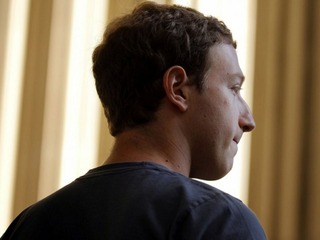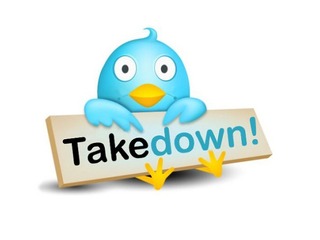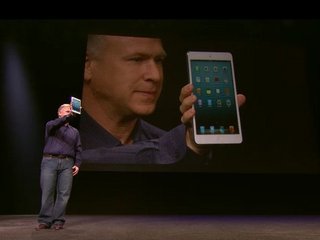DUOS expands AI capabilities to help seniors apply for assistance programs
It will complete and submit forms, and integrate with state benefit systems
Read more...
Pricing its shares at $38 a piece, Facebook reeled in $16 billion, making it the largest tech IPO in history. From there, it devolved into a clusterf*ck of epic proportions. One of the big issues raised by the IPO flop was the fact that Facebook underwriters had lowered their forecasts for Facebook just days before the IPO, but it appears they only told their top clients while giving false information to smaller investors. It’s technically a shocker, but not really, since several Internet analysts had called the unusually high share price into question before the IPO, pointing out that Facebook had not yet figured out how to monetize mobile usage.
9. Newsweek drops print edition
After nearly 80 years in print, Newsweek’s December 31st issue will mark the very last print issue ever. Newsweek announced in October that it would be switching over to an all-digital format as part of The Daily Beast. Since 2005, the magazine’s circulation has been cut in half to about 1.5 million while advertising pages have fallen off a cliff. With annual losses reaching $40 million, it became clear that Newsweek had reached the end of the line. It’s another sad example of print biting the dust. The news came just weeks after News Corp announced it was shutting down its all-digital-but-not-very-good magazine The Daily.
Known for surprising users with its superior quality and functionality, Apple shocked many this year when it dropped Google Maps in iOS 6 and replaced it with its own buggy, less reliable Maps app. The outcry from users resulted in a surprising apology letter from Tim Cook, as well as the firing of Scott Forstall, Apple’s VP of iOS software. The debacle traced its roots back to Google's refusal to upgrade its iOS app to include voice guided directions. The new iOS app now includes that feature, but has been found to be less accurate. Google has since submitted its own app to the App Store, where it has remained in the top 10 Free Apps. Google Maps for iOS saw 10 million downloads in just 48 hours.
7. iPad mini
Many remember Steve Jobs’s bizarre and kind-of-gross rant on seven-inch tablets. Back in 2010, when Samsung and other tablet makers were starting to put out their own seven-inch tablets, Steve Jobs joked that: “while one could increase the resolution to make up some of the difference, it is meaningless unless your tablet also includes sandpaper, so that the user can sand down their fingers to around one-quarter of their present size.” (Awesome visual there, chief.) And then lo…Apple releases an iPad mini with a 7.9-inch screen. Does this mean that all of Apple’s user testing and research was, in fact, wrong? No. What it means is people want cheaper tablets, and Amazon and Google’s seven-inch tablets were eating into Apple’s market share, forcing it to adapt.
2012 was definitely the year of Pinterest. A recent Nielsen report revealed that Pinterest has seen the most growth out of any other social network. Pinterest saw an increase of 1,047% among its PC users, and an increase of 1,698% among its mobile app users. For those visiting the site from the mobile Web, usage skyrocketed 4,225%, compared to 85% for Facebook and 140% for Twitter. In February, Pinterest reached 10 million users, making it the fastest stand-alone site to do so in history. Over the summer, several reports emerged showing that Pinterest was responsible for more referral traffic than Twitter, StumbleUpon, Bing, and Google combined. Nearly one-in-five Internet-using women in the U.S. is on Pinterest.
In August, a federal ruled in favor of Apple and a judge ordered Samsung to pay $1.05 billion in damages to Apple. The big issue was not just whether Samsung copied the look and feel of the iPhone, but whether it did so intentionally. The nine-person jury determined that yes, indeed, Samsung “willfully” infringed on several of Apple’s patents, including the “pinch and zoom” patent, the “bounce back” scrolling patent, and the patent on tapping to zoom. Apple has since gone on to lose several international lawsuits against Samsung, including one in the UK, in which a judge ordered Apple to issue a public apology. After fighting the order for several months, Apple finally apologized in spectacular fashion—by affirming that Samsung didn’t copy Apple’s products because they’re totally uncool.
4. Apple becomes the most valuable company in history (for a while)
The anticipation over the iPhone 5 was reflected in Apple’s climbing shares, which reached a high of $705 for a market cap of more than $657 billion—making it the most valuable U.S. company in history. Unfortunately, that buildup of excitement dried up into a flaky dandruff of disappointment, and share prices came sloping back down to the $500 range. Today, shares are trading at $515, up from a mid-month low of $503. In other words, Apple’s market cap lost some $180 billion over the last three months. Shares took a steep plunge earlier this month after several analysts slashed their targets. Oh well, it was fun while it lasted.
The height of middle school drama—and an invaluable glimpse into the way in which some companies are totally willing to screw over their own users to make a point. It all started in November, when Twitter announced it would be releasing a set of camera filters for its app (which is obviously what Instagram does too). Instagram said “aw hell naw” and announced that Instagram photos would no longer be embeddable into Twitter cards (trying to do so would make them appear cropped). A few days later, it cut off its Twitter support altogether. So instead of competing with Twitter in the photo-sharing/photo-editing space, Instagram decided it would be a better business decision to throw a toddler-esque temper tantrum and storm out of the room. Slow clap for you, Instagram.
2. Facebook buys Instagram for $1B
Which leads us into an even bigger shocker in 2012: Facebook acquires Instagram for $1 billion. Billion with a ‘B.’ The deal was so bizarre and unexpected that it pushed the whole “bubble” conversation into the larger mainstream discourse. Jon Stewart skewered the ridiculous valuation on “The Daily Show,” and the world braced itself for an onslaught of photo-sharing apps. To put it into perspective, the entire GDP for the country of Moldova is $7 billion.
1. Marissa Mayer named new CEO of Yahoo
But the biggest shocker of all this year was the appointment of Google veteran Marissa Mayer to the role of Yahoo CEO. She also happened to be six months pregnant at the time, making her the first pregnant woman to take over the role of CEO of a large U.S. tech company. She was also the youngest at 37. Mayer has covered a lot of firsts in her life, having been the first female engineer at Google. But there was also the fact that Mayer has essentially been the face of Google for years, having appeared at events and conventions as Google’s unofficial spokesperson. Since joining Yahoo, she has overhauled the management team and has made three acquisitions in accordance with Yahoo’s new aim to return to its consumer Internet roots. Since Mayer joined Yahoo, the company’s stock has climbed 22%.
Image source: sodahead.com
It will complete and submit forms, and integrate with state benefit systems
Read more...The bill would require a report on how these industries use AI to valuate homes and underwrite loans
Read more...The artists wrote an open letter accusing OpenAI of misleading and using them
Read more...
Joined Vator on









